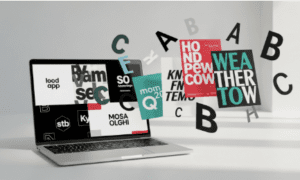If you operated your business back in the nineties, building brand trust was relatively straightforward: offer high-quality products or services at a reasonable price. But it’s 2024 now. And brand trust is much more than just quality and rates.
People now need to know if your brand is authentic and if it contributes to a more significant cause apart from just operating and driving leads. 90% of consumers report that they prioritize authenticity when deciding which brands to support. According to Edelman’s Trust Barometer 2020, 64% of customers identify as belief-driven buyers, believing that brands can serve as a powerful force for change. These consumers use their wallets to vote and support companies willing to take a stand on important issues.
But how to build this brand trust? What is meant by brand authenticity? And how can Etho’s branding help you achieve this? In this article, we’ll make our doubts clear about these questions.
Is Branding, Brand Trust, and Brand Authenticity the Same?
No! All of these terms refer to different concepts. Branding is the process by which you set a distinct personality for your brand. It includes all your core elements, your communication, your designs, and your content. In a competitive marketplace, efficient branding will set you apart from other businesses.
While one may argue that efficient branding leads to seamless trust, oftentimes, it does not. You can have the best branding strategies, the best color palettes on your social media, and the most inspiring taglines, yet you may still fail to realize the leads you’ve been expecting. In 2024, 81% of consumers say that they need to trust a brand before making any purchases. But apart from branding, what makes one brand stand out over another?
The short and simple answer is human psychology and perception. Our brains are naturally drawn to things we believe in. If we notice any inauthenticity or unfamiliarity in content, our brains will target an immediate red flag, and we’ll lose trust in the brand. Remember, trust takes a lot to build. But it can be tarnished easily.
The third term of the question, brand authenticity, refers to the extent to which a brand’s marketing and messaging align with the reality of its products, values, and actions. For example, if your core values are sustenance, it should be reflected in your brand messaging. For example, if your core value is sustainability, this should be reflected in your brand messaging. Your copy should communicate the specific solutions your products offer—nothing more, nothing less.
Sell your consumers precisely the things they envision based on your marketing efforts. Brand authenticity also plays a crucial role in developing brand trust, and if your brand lacks authenticity, building brand trust is out of the question.
What makes a brand authentic?
Consistency and authenticity are two critical pillars of effective branding. Overall, branding can separate your business among the masses, foster emotional connections with your audience, and make them believe that what you’re doing is truly unique, just, and superior. Here’s how you can achieve high levels of authenticity for your brand.
Consistency:
Nobody likes two faces of the same thing. This holds for your business as well. Consistency in branding refers to the uniformity of your messaging, visuals, and tone across all platforms and touchpoints. If your core values, messaging, or visuals alter from time to time, your brand will strike as the unauthentic one and drive away potential leads.
Storytelling:
People love to know the story behind things. Apart from a story, every brand seems to be the same. Successful brands have an aspiring story to tell. It can be how your brand came into being or the story of a great sportsman/hero who inspired your brand. If you share your story honestly and authentically, it’ll ultimately foster trust and credibility.
Transparency:
A study by Label Insight found that 94% of consumers are loyal to brands that prioritize transparency. When you are open about your business practices, values, and even challenges, customers feel more connected and valued. This level of openness fosters a more profound sense of trust. It shows that your brand has nothing to hide and you prioritize integrity over perfection.
Customer-centricity:
You can never be everything to everyone, but you can be something special for someone. Instead of casting a wide net, concentrate on a specific audience that genuinely values what your brand offers. Invest time and effort into knowing your audience, and then personalize your messaging, your marketing, and your ads to that specific group. Not everyone will be interested in what you provide, and that’s okay. Customer centricity ensures that your business delivers real value to those who matter most.
Deliver on Promises:
A brand’s authenticity is measured by how well it lives up to the promises it makes. Overpromising and underdelivering will quickly erode trust. On the other hand, consistently meeting or exceeding customer expectations builds long-term loyalty and reinforces the perception that your brand is dependable.
Unique Voice:
Your brand isn’t just a simple object; it’s your lifeblood, and it also has a core personality. That core personality must be seamlessly reflected in your brand’s voice. A brand’s voice, or brand messaging, refers to the tone, style, and language you use to communicate with your audience. It’s how you express your brand’s values, mission, and personality across all channels. Whether your brand voice is casual, professional, witty, or severe, stay true to it, and you’ll foster emotional connections with your consumers that set your business apart from competitors.
Brand Authenticity in a Nutshell
To pass some final thoughts, brand authenticity helps build consumer trust. When consumers fully trust a brand, they are more likely to prioritize it, remain loyal, become advocates, and defend it. Conversely, lost trust translates to lost revenue. According to Accenture, 54% of companies studied that lost consumer trust risked losing at least $180 billion.
But being genuine, honest, and authentic, authenticity is hard to achieve. You cannot possibly make your brand authentic by working alone, and overnight. That’s why we have tools for it. Learn how Ethos Branding can help you create an authentic brand that builds trust and fosters leads!
Try out our 30-day completely free trial—no credit card required!



































